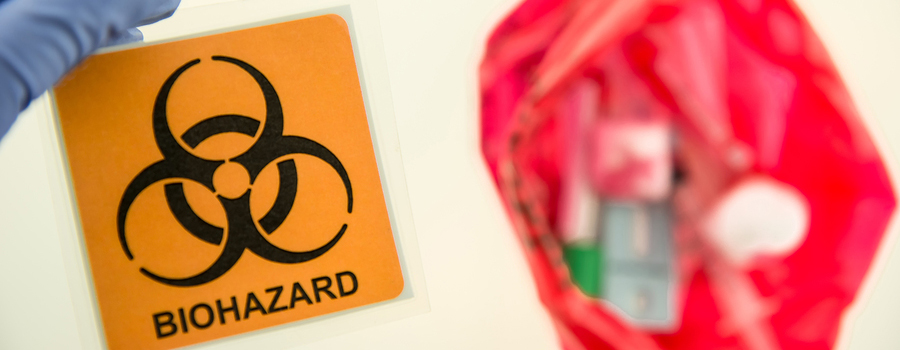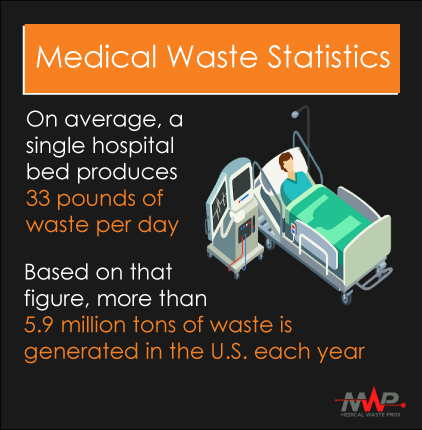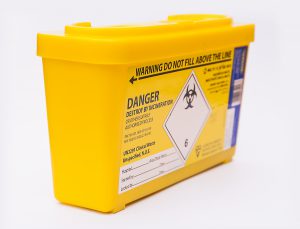How to Properly Dispose Medical Waste: The Go-To Guide

Medical waste is defined as any form of potentially infectious material produced at health care facilities like physician offices, urgent care centers, and hospitals.
Common types of medical waste include:
- Anatomical/Pathological waste
- Bandages, gloves, & other supplies
- Microbiological cultures & stocks
- Blood Products
- Sharps
- OPIMs
Each type of medical waste has different procedures for proper disposal. To learn what they are, watch the video or read the transcript below.
Video Transcript
3 Reasons Why You Should Prioritize Proper Medical Waste Disposal
- Health – Properly collecting and disposing of medical waste minimizes potential infection risks from contaminated materials
- Legal – Staying compliant with OSHA guidelines for how to manage and dispose of medical waste helps reduce legal liabilities.
- Environment – Established treatment methods like incineration keeps hazardous medical waste out of landfills and oceans

Separate & Store Medical Waste
Medical waste types range from sharps to used gloves and gauze, and since each is treated and disposed differently, they need to be separated and stored in different containers as well.
Sharps Disposal
Sharps are one of the most common types of waste because they’re used in a variety of places and for a variety of reasons.
Sharps need to be separated and disposed in individual containers at places like
- Physician Offices
- Pharmacies
- Hospitals
- Rehabilitation Facilities
- Urgent Care Facilities
- Residential Homes
- Nursing Homes
Red Bag Disposal
Red Bag disposal is used specifically for biohazardous waste (otherwise known as potentially infectious waste).
Medical waste requiring red bag disposal includes:
- Bandages, gauze, gloves, & gowns
- Items with dried blood & fluids
- Surgical tools & equipment
- All blood-soaked items
- Discarded vaccines
- Pathological waste
- Cytotoxic waste
Yellow Container Disposal
 Yellow waste containers are used for trace chemotherapeutic waste that’s considered “RCRA empty” according to EPA standards.
Yellow waste containers are used for trace chemotherapeutic waste that’s considered “RCRA empty” according to EPA standards.
To be RCRA empty the materials need to be empty and have less than 3% of their original volume remaining. This includes:
- Empty syringes and needles
- Empty IV bags and tubing
- Empty ampules and vials
- Gowns, gloves, and aprons
- Used wipes & packaging
Black Container Disposal
While yellow is designed for trace chemo waste, black containers, on the other hand, are used for chemotherapy waste that’s not “RCRA empty”.
Also called “bulk” waste, common types of hazardous waste to collect in black bins include:
- Partially used vials, bags, & IV tubing
- P-listed substances and containers
- Half/partial medication doses
- Pathological chemo waste
- PPE & cleaning materials
Blue Container Disposal
 Blue containers are designated for collecting pharmaceutical waste that’s defined as hazardous by the RCRA. The RCRA’s P & U lists outline the different types of hazardous pharmaceutical waste, including:
Blue containers are designated for collecting pharmaceutical waste that’s defined as hazardous by the RCRA. The RCRA’s P & U lists outline the different types of hazardous pharmaceutical waste, including:
- Warfarin
- Lindane
- Nicotine
- Cyclophosphamide
- Bulk Powders
- Expired/unused pills & injectables
How Medical Waste Disposal Works
When waste containers are full, the contents need to be safely disposed. But similar to how medical waste needs to be stored separately, the different types also need to be treated differently with methods like autoclaving, incineration, and irradiation.
Medical Waste Treatment In 4 Simple Steps
- Prior to treatment, the different types of medical waste are separated and collected in individual containers.
- After containers are full, they’re picked up and transported to a treatment facility.
- Medical waste types are treated in compliance with OSHA using various methods, including autoclaving, irradiation, incineration, and chemical disinfection.
- Last, a certificate of destruction is provided detailing treatment date, location, and chain of custody to give proof of compliance with laws like OSHA or HIPAA.
Have Medical Waste to Dispose?
Medical Waste Pros has helped members of the healthcare industry big and small fine-tune their medical waste management and disposal processes. To get started, fill out our form or give us a call at 888-755-6370 for free, no-obligation quotes from providers in your area.










